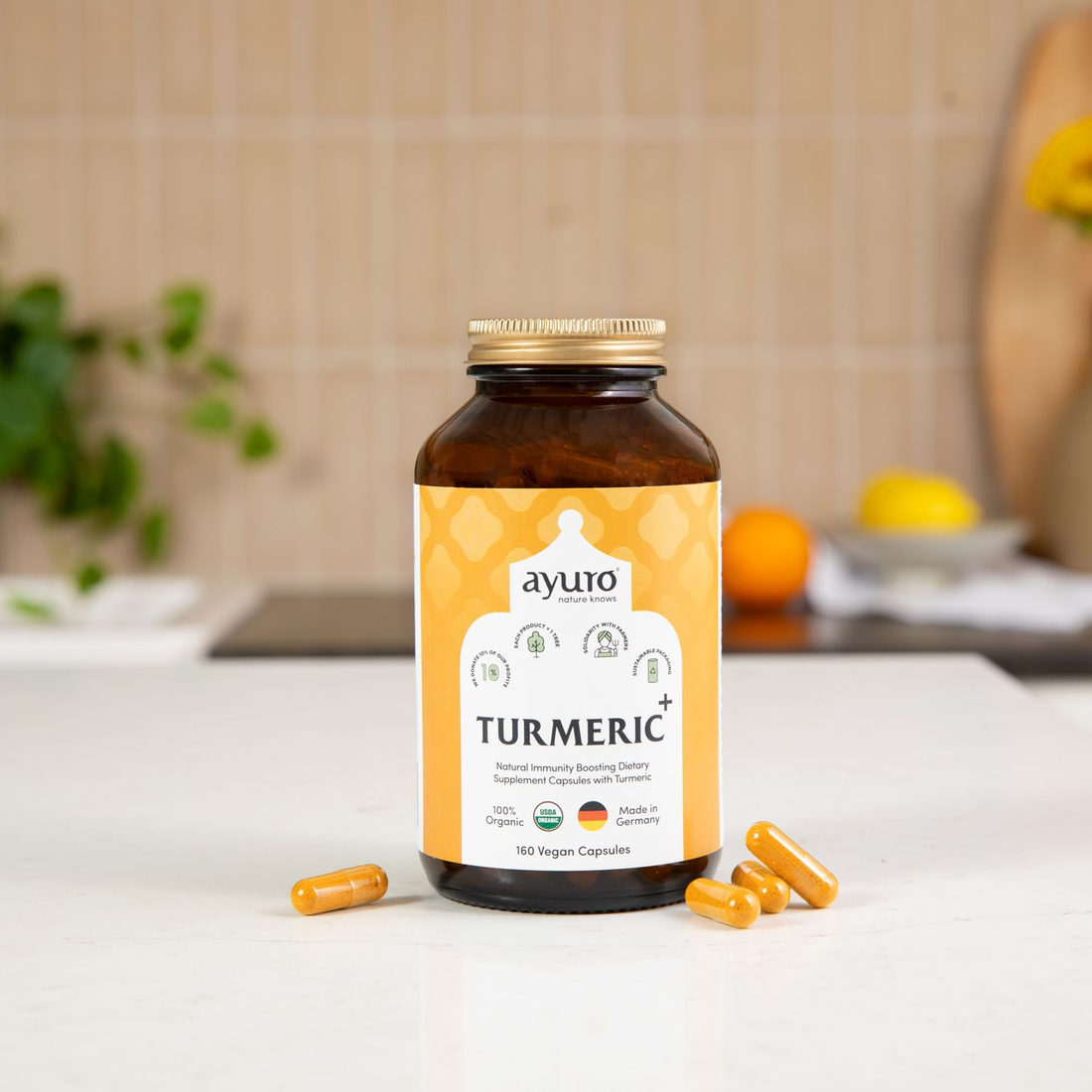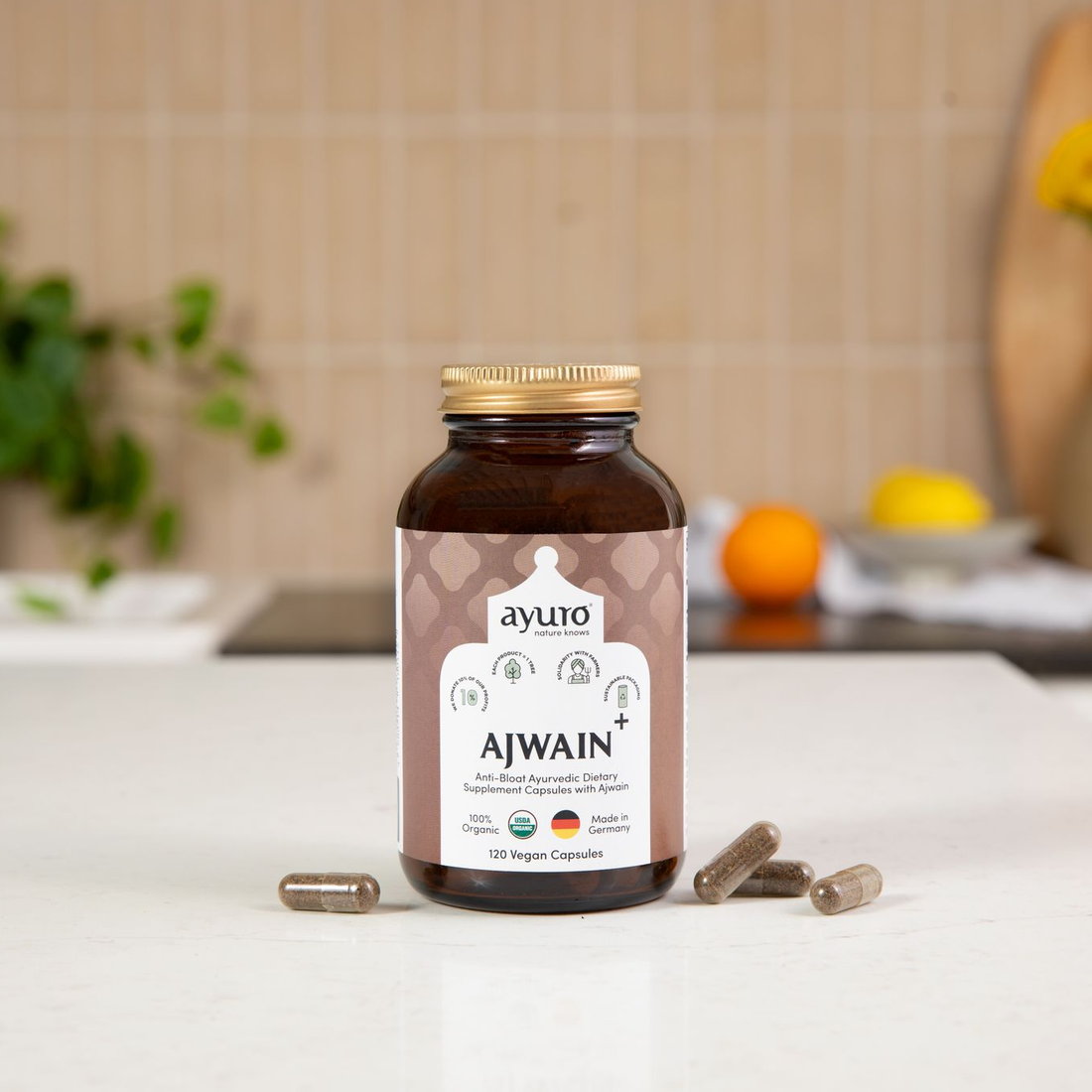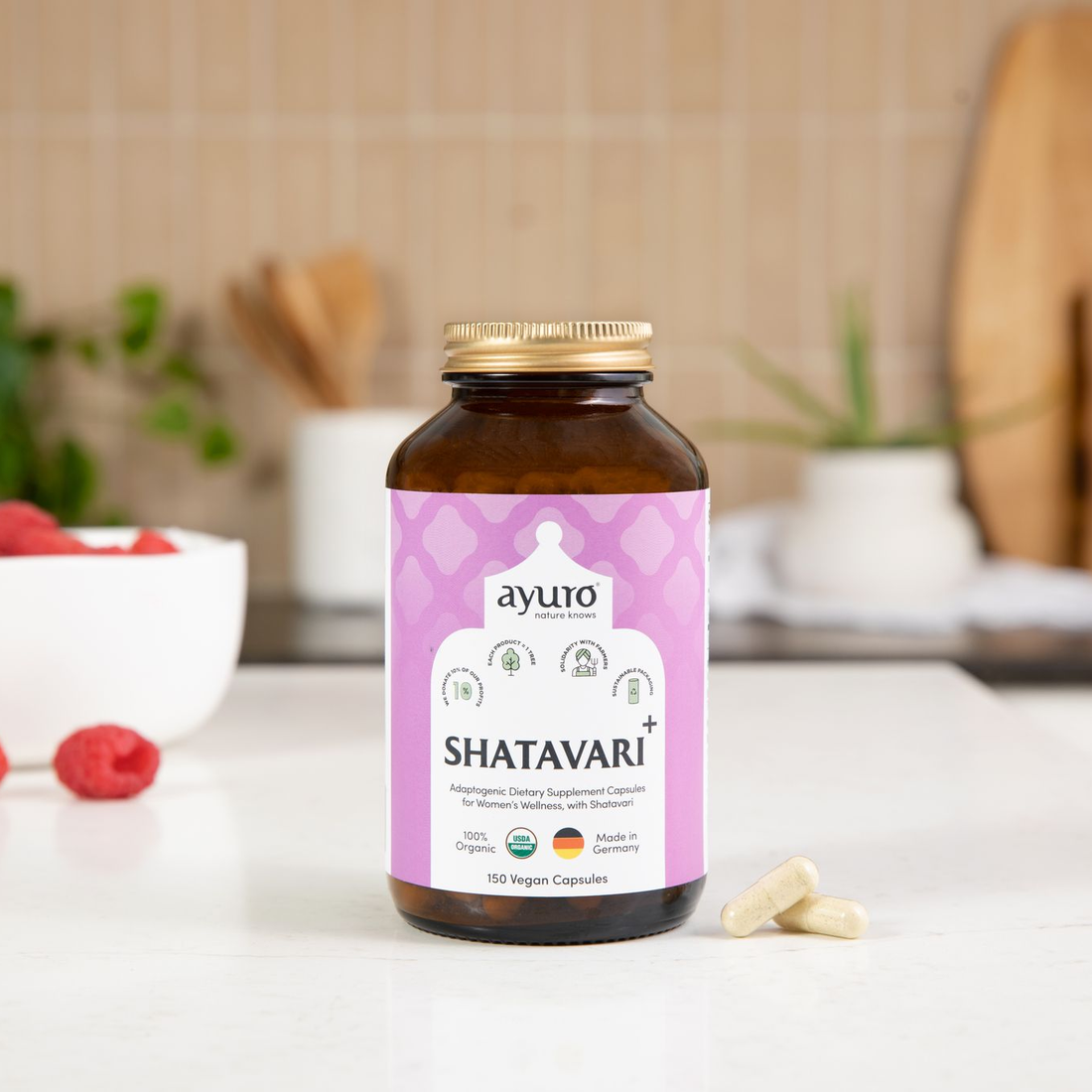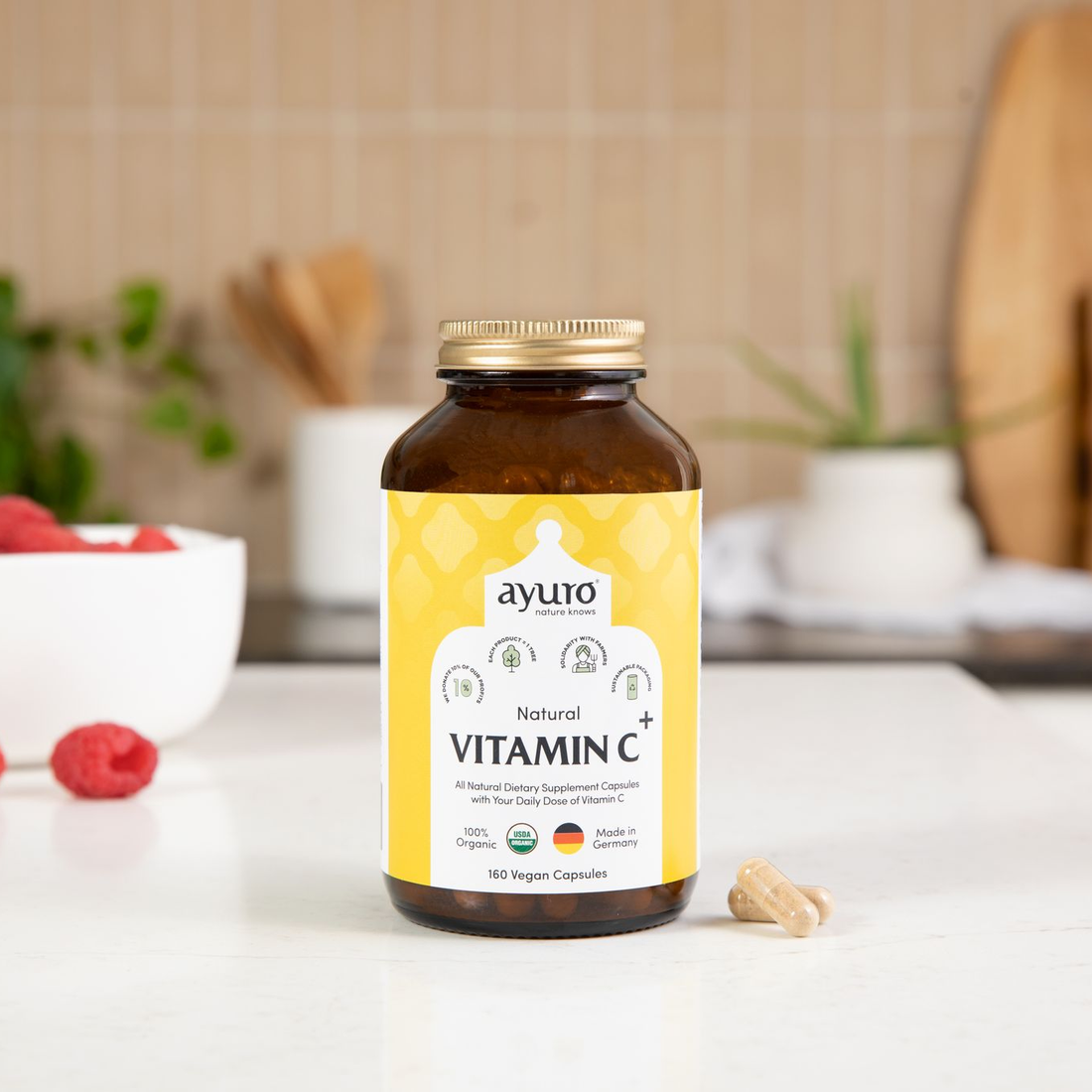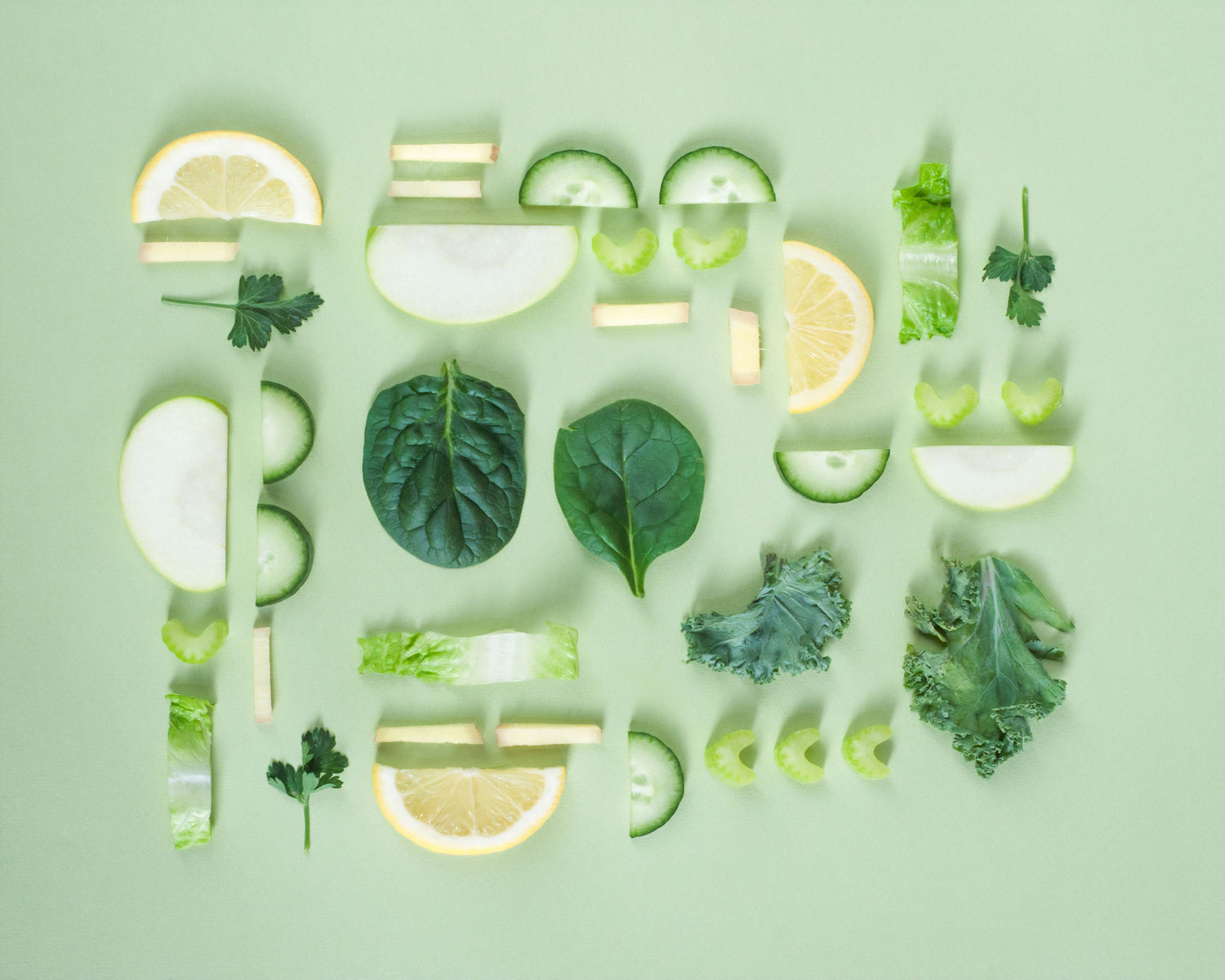Vitamin C is an essential vitamin with incredible health benefits. Most of us know it's the go-to supplement when you feel a cold coming on, whether you drink some orange juice or take it as a pill. This blog contains important information if you prefer getting vitamin C in supplement form.
Did you know there's a vast difference between natural and synthetic vitamin C? The vitamin C in most supplements comes from ascorbic acid, a synthetic version of the vitamin. Does it really matter where your vitamin C comes from? Yes, it does.
This blog will tell you everything you need to know about vitamin C supplements - why they're essential for optimal health, how much you need to avoid a vitamin C deficiency, and how you can get them in the best possible way.
Why Everyone Loves Vitamin C Supplements
Vitamin C is a potent antioxidant-rich micronutrient that packs a healthy punch! You need it to grow and repair cells to form blood vessels, muscles, cartilage, and collagen in bones. Because it promotes white blood cell production, vitamin C boosts the immune system, making it excellent for fighting the common cold and other viruses and infections.
Since it helps collagen synthesize, this potent vitamin helps promote healthier hair and skin. Vitamin C can also help regulate blood pressure, improves cardiovascular health, lower the risk of heart disease, improve cognitive function, and help improve iron absorption.
If you lack vitamin C, it can cause weak bones, dental health problems, and a lowered immune system.
How Much Vitamin C Do You Need?
You don't need as much naturally occurring vitamin C as you may think. The recommended daily value of vitamin C is between 75mg and 90mg. More than that is not necessary and may even be harmful! Our bodies only absorb the required quantity of vitamin C and release the rest as waste without any health benefit. Moreover, large doses of synthetic forms of vitamin C, like ascorbic acid, can cause health problems like arterial plaque buildup and gallstones.
Not All Vitamin C Sources Are Equal
You can take include a daily vitamin C supplement in your diet or get it from natural sources like eating whole foods containing it. There are two types of vitamin C, natural and synthetic vitamin C. Natural vitamin C comes from whole foods, and synthetic vitamin C is usually from a product called ascorbic acid.
Synthetic vitamins are manufactured and added to dietary supplements. Although manufacturers claim these vitamins are entirely natural, it's untrue. Synthetic vitamins are not grown with the goodness of sunlight, soil, and rain - companies create them in a lab.
How synthetic vitamins are made
Small amounts of ascorbic acid occur in nature. However, these tiny quantities are a minuscule part of the complex phytonutrients that make up natural vitamin C. Manufacturers isolate them and turn them into a concentration. This usually happens by breaking down corn starch through various processes involving heat, acetone, hydrochloric acid, and enzymes.
There's a risk that the synthetic vitamins made in this way may contain residues of these unhealthy chemicals. There are also all the associated risks of using GMO corn to produce this product. Another potential problem is that synthetic dietary supplements are often ineffective and may even cause nasty side effects like an upset stomach, flushing, and headaches.
So, What's The Best Source of Vitamin C?
Scientific studies claim that natural and synthetic vitamin C are chemically identical. However, how artificial products interact with the human body differs from how natural vitamin C interacts. Even if the two are chemically identical, there are significant differences, for example:
Absorption
Vitamin C-rich foods and natural vitamin C supplements are better absorbed. They also help your body absorb other nutrients better, especially iron. Since no scientific standard accurately measures how the body absorbs supplements, it's impossible to determine how well synthetic vitamin C supplements are absorbed.
Ingredients
A natural vitamin C supplement like AYURO Vitamin C+ contains 100% natural, organic ingredients, as opposed to the synthetic version of it, which could be made of GMO corn and other artificial ingredients. Since supplements are not regulated like conventional foods, sticking to natural vitamin supplements that provide quality assurance and only use premium-quality, natural ingredients is essential.
Vitamin C-Rich Foods or Natural Supplements?
Eating foods rich in vitamin C or including premium-quality, natural supplements in your diet give you the purest form of vitamin C. Here are some foods you could include in your diet for a vitamin C boost.
1. Camu Camu
This Amazonian berry is a tropical superfruit known for its incredible health benefits and high concentration of vitamin C in its purest form.
2. Amla
Amla is an Indian gooseberry rich in vitamin C, antioxidants, and phenolics. It's super sour, so best taken in supplement form.
3. Acerola Cherries

Another exotic superfruit, acerola cherries, are grown in the tropics and contain thirty times more vitamin C than citrus fruits! If you find acerola supplements, ensure it's pure to reap the most health benefits and antioxidant activity.
4. Baobab
This African superfruit's vitamin C content is ten times more than orange juice and contains six times more potassium than bananas.
5. Rose Hips
Rose hips are tiny but mighty fruits derived from the rose plant. They also have a high vitamin C content and make an excellent natural tea. Watch out for rose hip supplements; many contain nasty artificial ingredients.
6. Chili Peppers

A single green chili pepper gives you a giant dose of vitamin C, plus it contains antioxidants and has anti-inflammatory properties and boosts the metabolism. Tacos, anyone?!
7. Guava
This tropical superfruit is rich in vitamin C, fiber, and antioxidants. Guava has an exotic, sweet taste and texture and can help reduce cholesterol and lower blood pressure levels. It makes delicious juice.
8. Kale

This leafy green is loaded with vitamins A, K, and C and contains omega-3 fatty acids. It's excellent raw, cooked, and in smoothies.
9. Broccoli
Broccoli is a super easy cruciferous veggie, and it is high in vitamins C and A. Steam it, or eat it raw in a salad, yum!
10. Cauliflower
Cauliflower is one of the most versatile and delicious veggies. You can mash it, roast it, make 'rice' with it, or grill it. It's high in fiber, protein, and vitamin C!

Of course, not everyone lives in the Amazon, India, the tropics, or Africa, where some of these fruits and vegetables grow. Getting a daily intake of enough vitamin C-rich fruits and vegetables for optimal health may take work. The good news is that you can get premium-quality vitamin C supplements containing superfoods, like AYURO Vitamin C+, which is loaded with premium organic Amla and Camu Camu.
The Verdict: Natural Vitamin C vs. Synthetic Vitamin C
There are significant differences between natural and synthetic vitamin C. Most synthetic versions are made from ascorbic acid, which is not a healthy option. If you need some vitamin C, you should only consider natural, organic vitamin C supplements and fruits and vegetables high in this crucial vitamin. It's not only present in orange juice and citrus fruits - you have many other options to choose from. And if you prefer the convenience of a premium supplement, your best bet is AYURO Vitamin C+.



